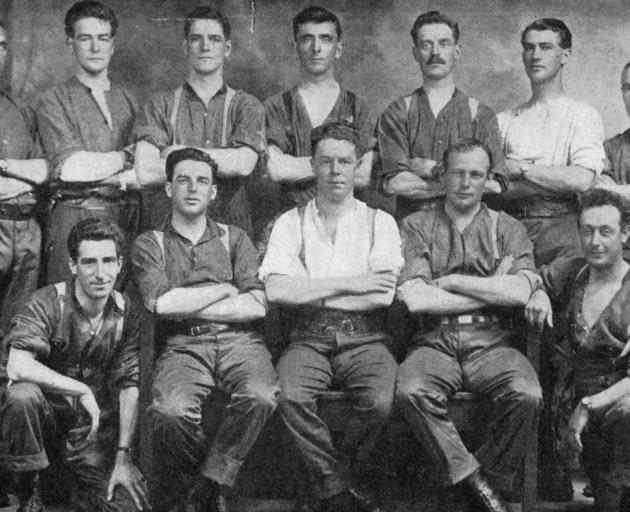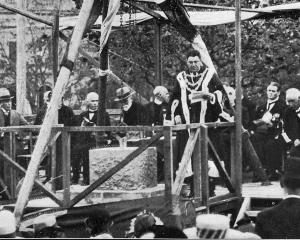
Should the company obtain this extension it is laid down that the concession will cease at the end of the period. The company can then, of course, remove its rails if it likes, but, should it do so, it must leave the road in sound order. But the council has also, paradoxical as it may seem, the right to notify the company before June 1 of its intention to acquire the line at valuation, which, of course, would be based on current war prices. If the council exercised this right it would have to buy at the price decided on, and the company would have to sell at that price. All these arrangements have now been set aside, and a new arrangement has been decided on between the council and the company. One valuator will be appointed by the council and another by the company, with an umpire. Their valuation of the company’s property will be made on the pre-war prices of the plant, etc. Once they decide on a price, it will be submitted to both the interested parties. It remains then for the company to say whether it will sell at the price agreed on, and for the council to say if it will accept it. If no decision can be come to the company will be given the right to run its trams for 21 years. The property will then be put up to auction, and the buyers will be granted another term of 10 years, with full valuation, if the council then decides to take it over.
Trentham hospital
With 5000 men in camp at Trentham, only 27 men are in hospital, one being a serious case, though not of an infectious nature. This is considered to be a record for the month of May, and is regarded as an indication of a probable low rate of sickness in the camps during the winter, especially in view of the arrangements made to segregate the men from the four military districts in a new camp at Tauherenikau. As the men from each district are mobilised they will receive issues of clothing and equipment at Trentham, and within a week will proceed to Tauherenikau, where they will be kept strictly within the bounds of the camp for one month.
Orphan homes
The New Zealand Herald states that since the foundation, in 1860, of the orphan home of the Anglican body, which now has its institution at Papatoetoe, 736 children have passed under its care. Of these 661 have been placed in situations, returned to friends or otherwise provided for, only four have died, and 71 are still under the care of the trustees. The present inmates own £1318 in the Auckland Savings Bank, their individual portions being payable to them as they come of age.
Ships torpedoed
The Admiralty reports that the British transport Transylvania was torpedoed in the Mediterranean Sea on the night of May 4-5. The following lives were lost: Twenty-nine officers, 373 of other ranks, as well as the captain, one of the officers, and nine of the crew;- total, 413. The escorting destroyers picked up the Transylvania survivors. Official: The steamer Sonray, with 81 of a crew and 344 passengers, was torpedoed en route from Salonika to Marseilles. Forty-five persons perished, including the commander. — ODT, 26.5.1917
• COPIES OF PICTURE AVAILABLE FROM ODT FRONT OFFICE, LOWER STUART ST, OR WWW.OTAGOIMAGES.CO.NZ












